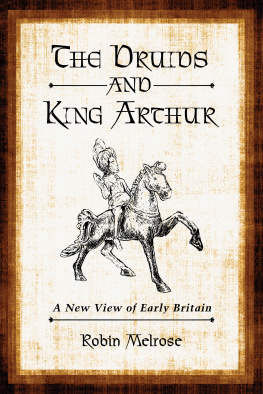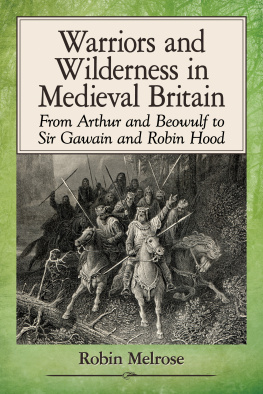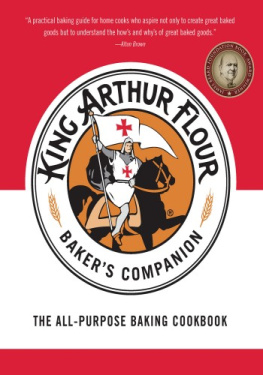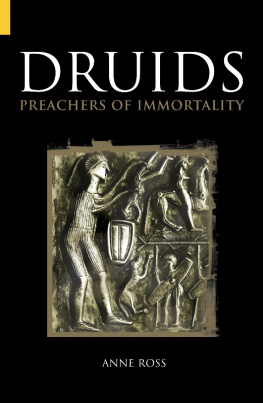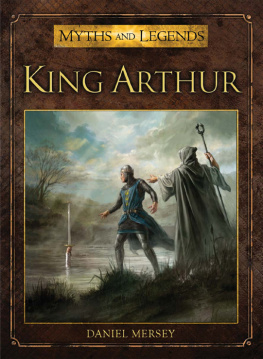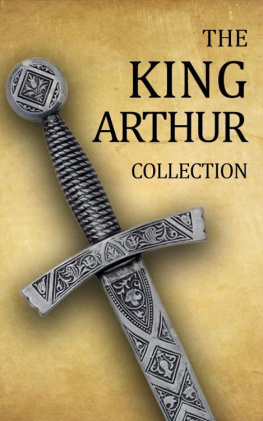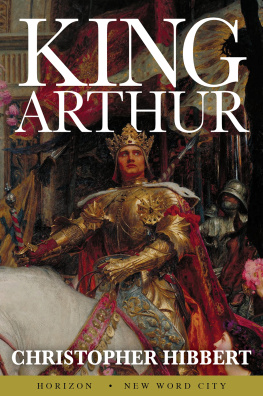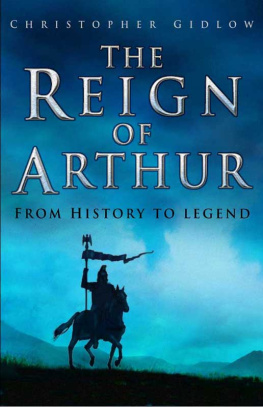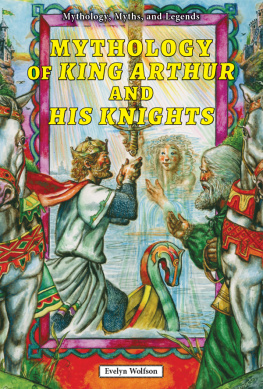Robin Melrose - The Druids and King Arthur
Here you can read online Robin Melrose - The Druids and King Arthur full text of the book (entire story) in english for free. Download pdf and epub, get meaning, cover and reviews about this ebook. genre: Art. Description of the work, (preface) as well as reviews are available. Best literature library LitArk.com created for fans of good reading and offers a wide selection of genres:
Romance novel
Science fiction
Adventure
Detective
Science
History
Home and family
Prose
Art
Politics
Computer
Non-fiction
Religion
Business
Children
Humor
Choose a favorite category and find really read worthwhile books. Enjoy immersion in the world of imagination, feel the emotions of the characters or learn something new for yourself, make an fascinating discovery.
- Book:The Druids and King Arthur
- Author:
- Genre:
- Rating:5 / 5
- Favourites:Add to favourites
- Your mark:
- 100
- 1
- 2
- 3
- 4
- 5
The Druids and King Arthur: summary, description and annotation
We offer to read an annotation, description, summary or preface (depends on what the author of the book "The Druids and King Arthur" wrote himself). If you haven't found the necessary information about the book — write in the comments, we will try to find it.
Robin Melrose: author's other books
Who wrote The Druids and King Arthur? Find out the surname, the name of the author of the book and a list of all author's works by series.
The Druids and King Arthur — read online for free the complete book (whole text) full work
Below is the text of the book, divided by pages. System saving the place of the last page read, allows you to conveniently read the book "The Druids and King Arthur" online for free, without having to search again every time where you left off. Put a bookmark, and you can go to the page where you finished reading at any time.
Font size:
Interval:
Bookmark:

McFarland & Company, Inc., Publishers
Jefferson, North Carolina
Illustrations by Diana Gardner
LIBRARY OF CONGRESS CATALOGUING DATA ARE AVAILABLE
BRITISH LIBRARY CATALOGUING DATA ARE AVAILABLE
e-ISBN: 978-0-7864-6005-2
2011 Robin Melrose. All rights reserved
No part of this book may be reproduced or transmitted in any form or by any means, electronic or mechanical, including photocopying or recording, or by any information storage and retrieval system, without permission in writing from the publisher.
Front cover: The rider-god known as the Thracian Horseman, found on the Lincolnshire/Nottinghamshire border, near the village of Brough (Roman Crocolana). British Museum.
McFarland & Company, Inc., Publishers
Box 611, Jefferson, North Carolina 28640
www.mcfarlandpub.com
Many books have been written about the Druids, and even more have been written about King Arthur. However, this book is not really about the Druids or King Arthur, but about where the people we call the Druids came from, where the story of Arthur came from, and the role played by the Druids and Arthur in the creation of a new order after the end of Roman rule. To understand the beliefs of the Druids, we will be looking at the religion of Roman Britain, an Old Welsh poem called The Spoils of Annwn, and four medieval Welsh tales known as the Mabinogion. To understand where the Druids originated, we will be investigating the archeology and history of Salisbury Plain, the site of Stonehenge, and surrounding areas from 2300 B.C. until the arrival of the Celts; and we will be exploring legends of the foundation of Britain, the cult of the Thracian Horseman, the oracle of Dodona who listened to the rustling of oak leaves, the lore and legends surrounding the star Arcturus and Arcas the mythical founder of Arcadia, and some basic principles of prehistoric astronomy. From this rich brew we will demonstrate that the Druids originated from central or eastern Europe in around 850 B.C., bringing with them the cult of an underworld deity, a belief in reincarnation, and a keen interest in astronomy. In the final chapter we will show that while the Druids tried to protect the people of Britain from the comet that appeared in A.D. 539 and the outbreak of plague that followed it with the monster-slaying Arcturus/Arthur, at the same time a descendant of the families that had ruled Salisbury Plain for so long joined forces with another Briton to establish the Kingdom of Wessex and so maintain a continuity that was only broken by the Norman Conquest in 1066. The Druids are usually interpreted as oak-seers, but I will argue that they were in fact doorkeepers who, with their knowledge of the doors to the underworld and the celestial realms, ruled over the people of southern England for over a thousand years and guided them through the transition from Roman Britain to Saxon England.
In researching this book, I have drawn on the works of a large number of writers and scholars from the dawn of European literature to the present day. As far as primary sources go, I have relied on numerous classical Greek and Roman authors, from Homer and Hesiod to Julius Caesar, Pliny the Elder and Tacitus, for their insights into the Druids, the Celts and a host of other subjects. For insights into early British religion, mythology and history, I have consulted works in Latin, including Nenniuss History of the Britons and Geoffrey of Monmouths History of the Kings of Britain, and works in Welsh, including the mysterious and haunting poem The Spoils of Annwn, which has an early mention of Arthur, and the mythological tales of the medieval Welsh Mabinogion, which may provide the key to early British history as well as further information on the Druids and Arthur.
As for secondary sources, I am indebted to the work of the archeologist Barry Cunliffe, who has not only carried out excavations of important sites like the hillfort of Danebury in Hampshire, but has in all his writings tried to put a human face to the people whose dwelling-places he has excavated, and brought alive the prehistory of southern England. Another scholar whose work has contributed to this book is Miranda Green: her output on the Celts has been prodigious, and I have frequently turned to her two books on Celtic art and the role of animals in Celtic life and myth for guidance. I have also made considerable use of John Kochs Celtic Culture: A Historical Encyclopedia, an indispensable work for someone with an interest in the Celts.
But this book is not only about the Celts, and The All-Knowing God, by the Italian scholar Raffaele Pettazzoni, first published in 1955, has proved an invaluable resource in understanding the religion of the Thracians and the Thracian Horseman. Graham Andersons King Arthur in Antiquity has proposed a number of Greek, Macedonian and Scythian sources for the mythology of Arthur and opened up some novel lines of research; Thomas McEvilley, in The Shape of Ancient Thought, has provided a plausible framework for the Druid belief in reincarnation; and both Richard Hinckley Allen (Star Names: Their Lore and Meaning) and F. Graham Millar (The Celestial David and Goliath) have made me understand how the Druids and the prehistoric people of southern England may have viewed the heavens. Finally, in the Arthurian sections I have relied on the work of Frank D. Reno (Historic Figures of the Arthurian Era) for the historical background to Arthur, Thomas Green (Concepts of Arthur) for the mythological Arthur, and Barbara Yorke (Wessex in the Early Middle Ages) for the early history of Wessex.
Ultimately I have used all these writers and scholars very much in my own way, drawing conclusions that those among them who are still alive might well disagree with. In coming to these conclusions, I had a number of eureka moments: one when I read in Gibbons Decline and Fall of the Roman Empire about the comets in the 530s and the ensuing plague, and linked that to the story of how Uther Pendragon got his name; another when I read in Cunliffes Iron Age Communities that the All Cannings Cross pottery of Wiltshire could have been brought there by people from eastern France about 800 B.C.; and a third when I read in Cunliffe about the horse-and-dog burials at Danebury and discovered they might have a Druid connection. The conclusions I have drawn may well be wrong, but I have tried to provide solid evidence for them wherever that was possible, and weave all the disparate elements into a coherent narrative that tells the story of southern England from the time of Stonehenge to the founding of the kingdom of Wessex in the 6th century A.D., accounting for the Druids and the story of Arthur. At times I have resorted to etymology (the history of the origins of words) to prove a pointI have a professional interest in languageusing the Indo-European Etymological Dictionary of the great German philologist Julius Pokorny, and Ranko Matasovics Etymological Lexicon of Proto-Celtic, as well as Kochs excellent etymological notes. Sometimes when history, literature and archeology are silent on a particular point, language is the only resource we have for peering into the past. Words have a story to tell, if only we can find a way of making them talk, and I am always happy to hear any story that will unlock the secrets of the distant past. My greatest regret, as a student of language, is that, as languages have disappeared from southern England, so many stories have been lost, so many ways of understanding the world have vanished. This book has been written in an attempt to recover these lost stories, these vanished ways of viewing the world. If I have succeeded in this endeavor, then it has all been worthwhile.
Font size:
Interval:
Bookmark:
Similar books «The Druids and King Arthur»
Look at similar books to The Druids and King Arthur. We have selected literature similar in name and meaning in the hope of providing readers with more options to find new, interesting, not yet read works.
Discussion, reviews of the book The Druids and King Arthur and just readers' own opinions. Leave your comments, write what you think about the work, its meaning or the main characters. Specify what exactly you liked and what you didn't like, and why you think so.

